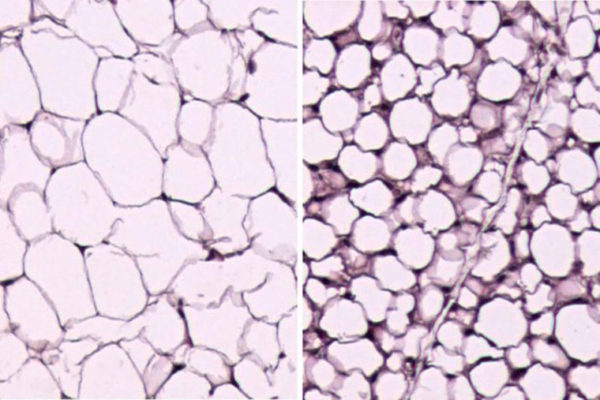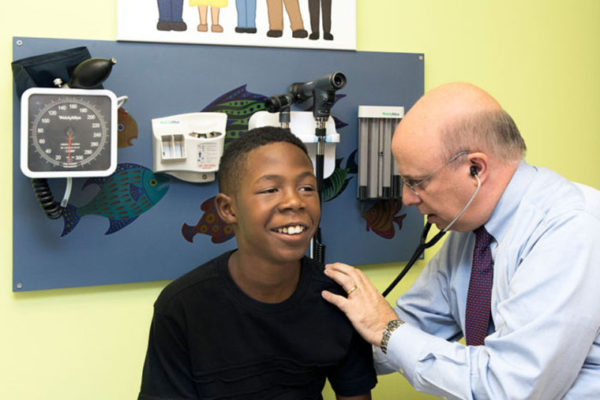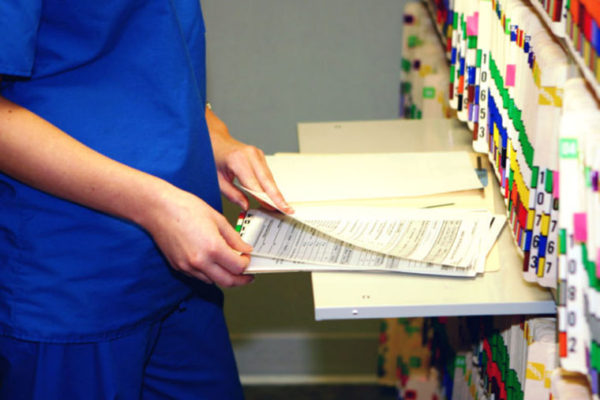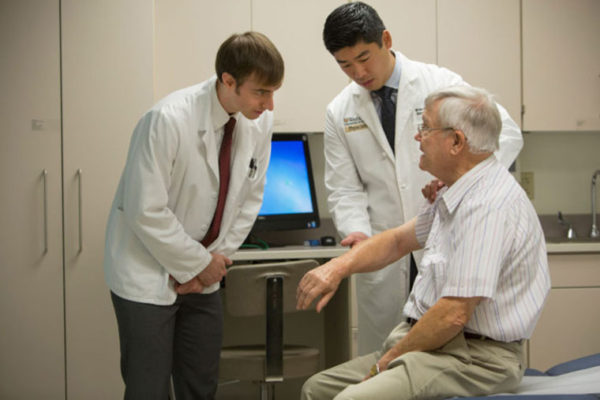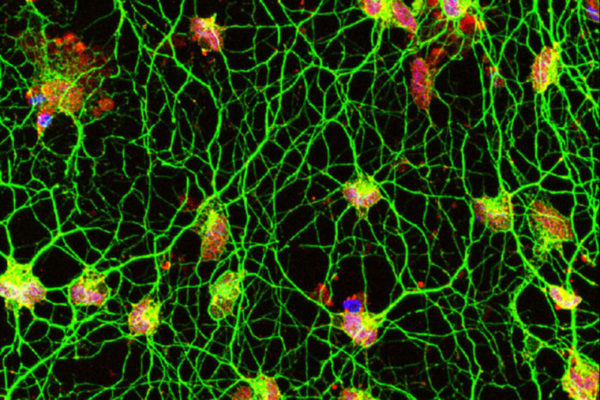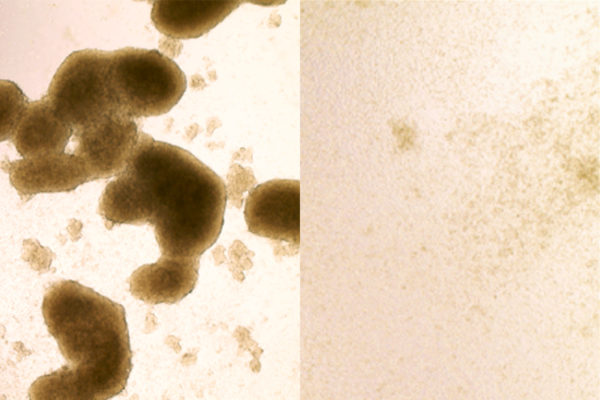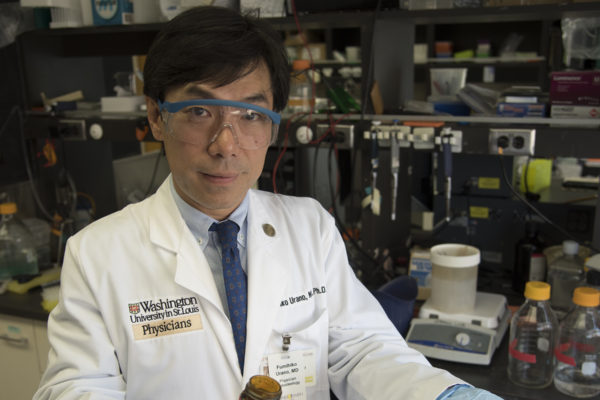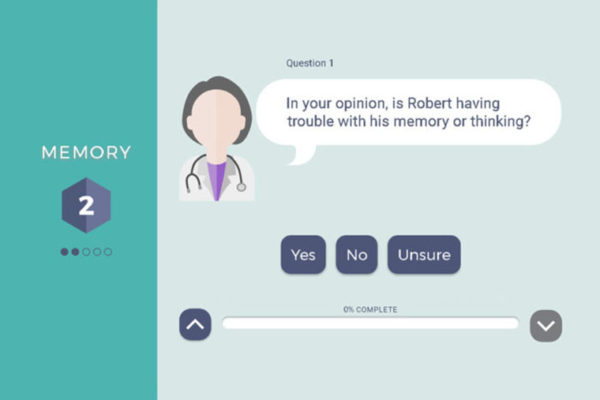Scientists find way to convert bad body fat into good fat
Research at the School of Medicine has identified a way to convert bad, white fat into good, brown fat, at least in mice. The findings raise the prospect of developing more effective treatments, in people, for obesity and diabetes related to weight gain.
Pet, pest allergens linked to reduced asthma risk
An ongoing study at the School of Medicine is aimed at understanding what factors may increase or decrease the risk of developing asthma in childhood.
Medical students not trained to prescribe medical marijuana
Although medical marijuana is now legal in more than half of the states in the country, researchers at the School of Medicine have found that medical marijuana is rarely addressed in medical education.
Medical history can point to earlier Parkinson’s disease diagnosis
Researchers at the School of Medicine have analyzed Medicare claims data of more than 200,000 people to develop an algorithm to predict whether a patient one day will be diagnosed with Parkinson’s.
Does improving cardiovascular health reduce risk of dementia?
Researchers at the School of Medicine are recruiting volunteers for a national study that is exploring whether strategies to improve cardiovascular health also reduce the risk of dementia in those at risk for Alzheimer’s disease.
Potential new therapy relieves chronic itch
Research at Washington University School of Medicine in St. Louis has identified immune signaling molecules that are essential for activating neurons in the skin to cause chronic itching.
Human skin cells transformed directly into motor neurons
Scientists at the School of Medicine have converted skin cells from healthy adults directly into motor neurons without going through a stem cell state.
Zika virus kills brain cancer stem cells
New research from the School of Medicine in St. Louis and the University of California San Diego School of Medicine shows that the Zika virus can kill brain cancer stem cells, the kind of cells most resistant to standard treatments.
$46 million NIH grant to nurture translational research
The School of Medicine has received a $46 million grant from the National Institutes of Health (NIH) to support research aimed at translating scientific and clinical discoveries into new diagnostics and therapeutics, and to more rapidly apply research findings to improve health.
Testing begins for student-created app to aid Alzheimer’s diagnosis
With the aim of streamlining the diagnosis of Alzheimer’s disease, a Washington University student-led team has designed an online app to help doctors more quickly evaluate patients. The app is being tested at the School of Medicine.
View More Stories
